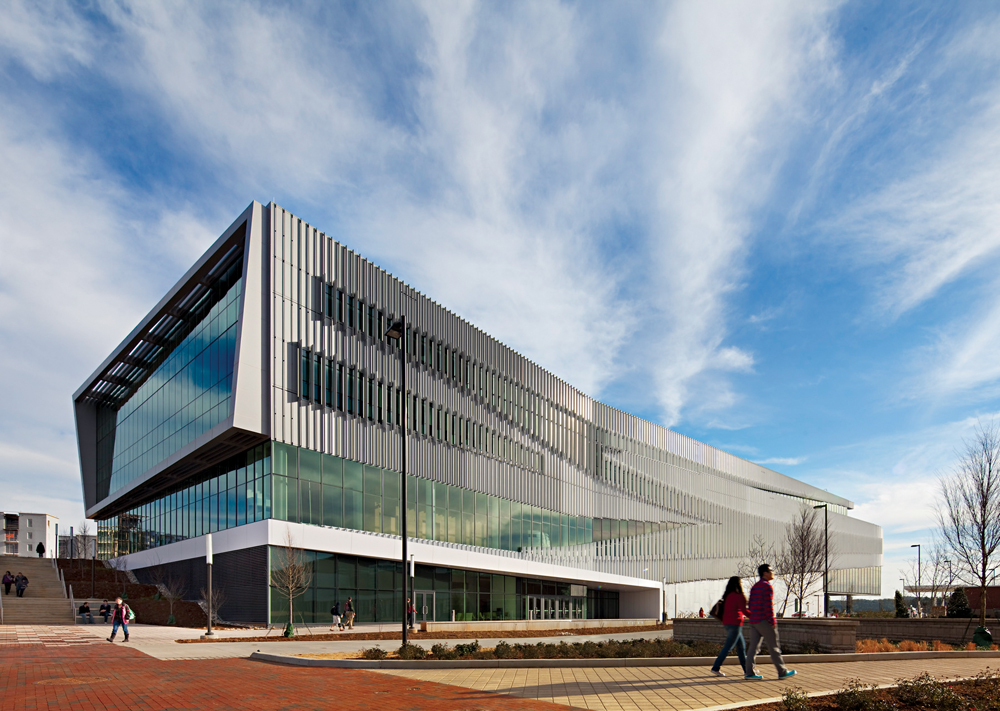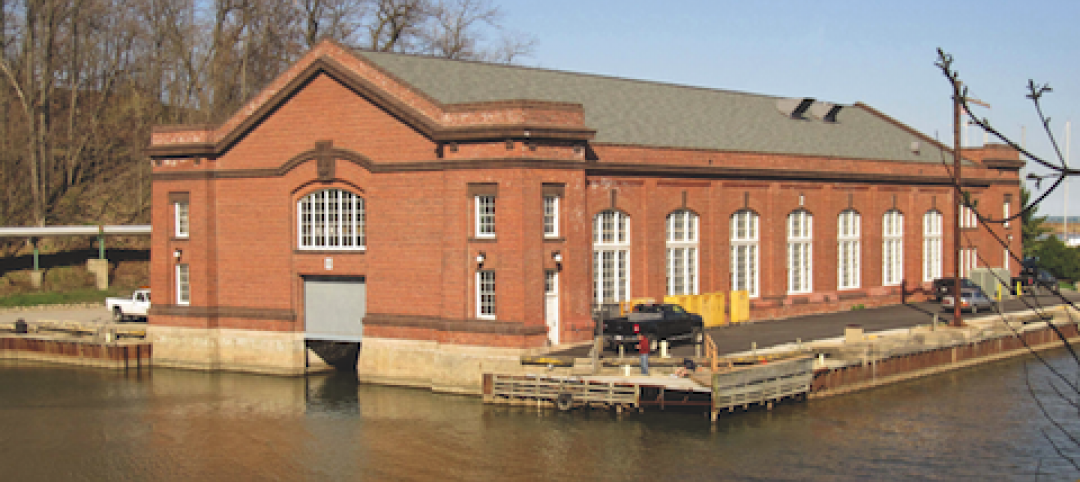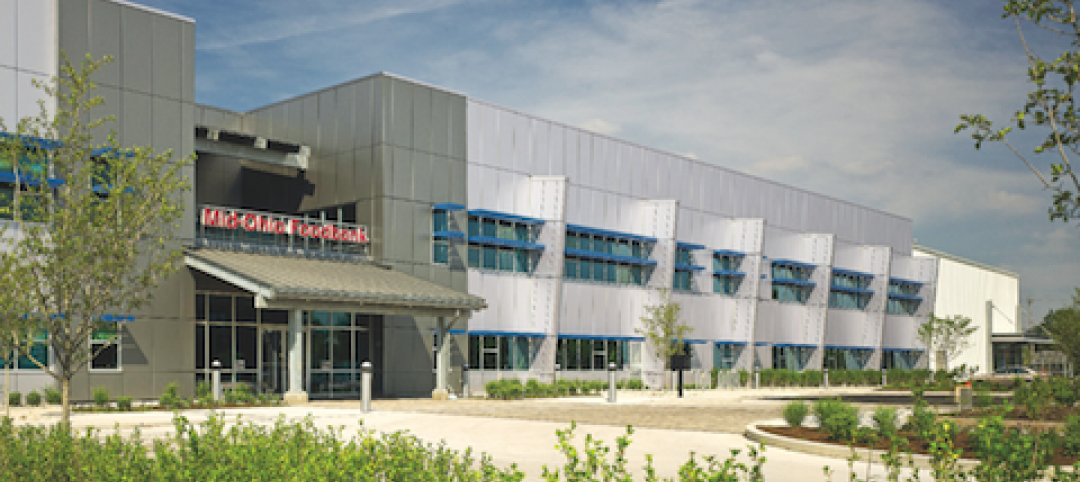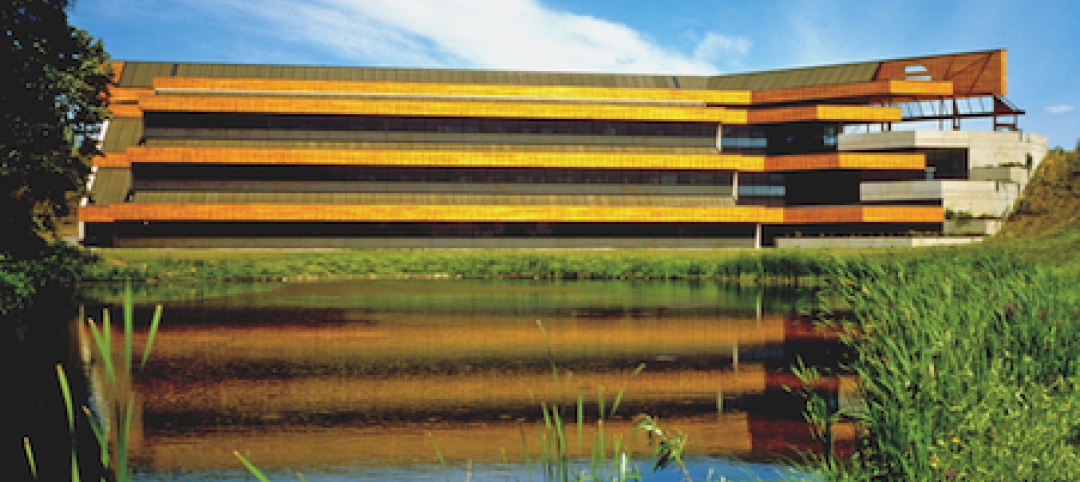Economic recovery has been slow, and the overall higher ed market is still fairly flat, according to a 2013 report by consultant Paul Abramson, using data from Dun and Bradstreet (http://bit.ly/ZiM6cQ).
Nevertheless, better investment performance is improving the mood of donors and easing some of the pressure on endowments. “The market is beginning to open up, with pent-up demand pushing projects to get funded and into design and construction,” says Steve Rhoades, Associate Principal and Client Executive at KJWW Engineering Consultants.
Recruitment pressure has convinced some clients to green-light capital projects. “One of the key drivers of growth is the need for colleges and universities to stay more competitive in amenities: more luxurious dorms, state-of-the-art athletic facilities, technologically advanced classrooms,” says Thomas Goemaat, President and CEO of Shawmut. Goemaat says his firm has seen a “significant and sustained uptick” in academic work in New England and the Tri-State region of New York, New Jersey, and Connecticut.
Large facilities that combine academic and medical objectives are capitalizing on the synergy between education, science, and clinical services. For instance, the University at Buffalo (N.Y.), whose UB2020 master plan has been simmering since 2004, will break ground this fall on its $375 million School of Medicine and Biomedical Sciences Building. At half a million square feet, the HOK-designed facility is the linchpin of UB’s plan to create a whole new Downtown Campus. The city will build a Metro station below the structure, and a children’s hospital (run by the nonprofit Kaleida Health) and privately owned medical office building will rise next door.
TOP UNIVERSITY ARCHITECTURE FIRMS
2012 University Revenue ($)1 Cannon Design $71,000,0002 Perkins+Will $49,726,5433 Stantec $36,704,0774 EYP $30,000,0005 SmithGroupJJR $25,600,0006 Gensler $22,140,0007 IBI Group $21,432,7128 Flad Architects $20,350,0009 Wight & Co. $18,072,20010 Sasaki Associates $16,865,404
TOP UNIVERSITY ENGINEERING FIRMS
2012 University Revenue ($)1 Affiliated Engineers $47,202,0002 URS Corp. $39,211,8523 AECOM Technology Corp. $33,000,0004 Buro Happold Consulting Engineers $28,695,0005 Burns & McDonnell $25,635,0006 STV $21,121,0007 Parsons Brinckerhoff $19,000,0008 Clark Nexsen $18,141,7909 Vanderweil Engineers $15,062,10010 KJWW Engineering Consultants $13,554,873
TOP UNIVERSITY CONSTRUCTION FIRMS
2012 University Revenue ($)1 Whiting-Turner Contracting Co., The $818,113,1402 Turner Corporation, The $701,340,0003 Skanska USA $437,058,2284 Structure Tone $354,907,9005 PCL Construction Enterprises $340,500,0756 Mortenson Construction $246,330,0007 Swinerton Builders $229,439,9508 DPR Construction $227,149,3779 Sundt Construction $225,748,51410 Austin Commercial $225,311,911
The partnership aspects of the UB project illustrate a trend toward creative public/private development. “There is a growing understanding that institutions can no longer afford to function independent of their host community—a change that has been driven in part by growing financial pressures,” says Mike Medici, AIA, Learning Practice Leader at SmithGroupJJR. “This is leading to an increase in community development partnerships as institutions seek to leverage their impact as ‘economic engines.’”
In Camden, N.J., Rowan University is finishing its $139 million Cooper Medical School education building—home of a new med school, the state’s first such project in more than 30 years. The curriculum emphasizes problem-based learning, with academic facilities tailored to group work plus hands-on simulations with robots and even a virtual reality CAVE. The project, designed by HDR, embodies higher ed’s current concern for programs that prepare students for a tough job market.
With thousands of traditional dorms still in use, the need for more modern residences also continues to generate work. Some responses have been dramatic, such as the 21-story Tree House just built by Suffolk Construction at the Massachusetts College of Art and Design, Boston. Amenities of the 493-bed apartment-style facility include a health center, café, and “Pajama Floor” where students can play games, watch TV, study, or work out while doing laundry. Hardin Construction (just acquired by DPR) recently delivered projects comprising nearly 2,000 beds for four academic clients in Georgia—all spurred by a desire to meet “modern consumer expectations,” according to Director of Higher Education Carlos Torres.
In another competitive strategy, some schools are replacing old-style student unions with recreation centers emphasizing wellness. Buildings may include student services offices, clinics, or classrooms for related subjects.
Auburn University at Montgomery (Ala.) positioned its 74,000-sf Wellness Center as a new front door for the entire campus. Constructed by BL Harbert International, the facility includes outdoor fields, two basketball courts, weight and cardio rooms, two multipurpose rooms, an aquatic center with outdoor spa, an indoor track, climbing wall, and juice bar, plus classrooms, lecture halls, and a lab for the Department of Physical Education and Exercise Science.
Finally, the American College & University Presidents’ Climate Commitment, now with 669 signatories, continues to influence construction. Some schools are eyeing net-zero and the Living Building Challenge for a variety of building types. And though central plants may not be glamorous, many clients now recognize the tantalizing ROI offered by improved infrastructure. In an extreme example, Rist-Frost-Shumway engineered a new 15,800-sf wood-biomass heating plant with cogeneration for Colby College in Waterville, Maine—a milestone in the school’s quest for carbon neutrality.
As in other sectors, energy performance of existing buildings is also becoming a high priority for higher ed. “The old piecemeal approach that advocates randomly adding sustainable applications won’t do the trick; more holistic building energy strategies are required,” says Vuk Vujovic, Director of Sustainable Design at Legat Architects.
Read BD+C's full Giants 300 Report
Related Stories
| Oct 12, 2010
Building 13 Naval Station, Great Lakes, Ill.
27th Annual Reconstruction Awards—Gold Award. Designed by Chicago architect Jarvis Hunt and constructed in 1903, Building 13 is one of 39 structures within the Great Lakes Historic District at Naval Station Great Lakes, Ill.
| Oct 12, 2010
Full Steam Ahead for Sustainable Power Plant
An innovative restoration turns a historic but inoperable coal-burning steam plant into a modern, energy-efficient marvel at Duke University.
| Oct 12, 2010
From ‘Plain Box’ to Community Asset
The Mid-Ohio Foodbank helps provide 55,000 meals a day to the hungry. Who would guess that it was once a nondescript mattress factory?
| Oct 11, 2010
HGA wins 25-Year Award from AIA Minnesota
HGA Architects and Engineers won a 25-Year Award from AIA Minnesota for the Willow Lake Laboratory.
| Oct 11, 2010
MBMA Releases Fire Resistance Design Guide for metal building systems
The Metal Building Manufacturers Association (MBMA) announces the release of the 2010 Fire Resistance Design Guide for Metal Building Systems. The guide provides building owners, architects, engineers, specifiers, fire marshals, building code officials, contractors, product vendors, builders and metal building manufacturers information on how to effectively meet fire resistance requirements of a project with metal building systems.
| Oct 11, 2010
Rhode Island is the first state to adopt IGCC
Rhode Island is the first state to adopt the International Green Construction Code (IGCC). The Rhode Island Green Buildings Act identifies the IGCC as an equivalent standard in compliance with requirements that all public agency major facility projects be designed and constructed as green buildings. The Rules and Regulations to implement the Act take effect in October 2010.
| Oct 8, 2010
Union Bank’S San Diego HQ awarded LEED Gold
Union Bank’s San Diego headquarters building located at 530 B Street has been awarded LEED Gold certification from the Green Building Certification Institute under the standards established by the U.S. Green Building Council. Gold status was awarded to six buildings across the United States in the most recent certification and Union Bank’s San Diego headquarters building is one of only two in California.
| Oct 6, 2010
Windows Keep Green Goals in View
The DOE's National Renewable Energy Laboratory has almost 600 window openings, and yet it's targeting LEED Platinum, net-zero energy use, and 50% improvement over ASHRAE 90.1. How the window ‘problem’ is part of the solution.
| Oct 6, 2010
From grocery store to culinary school
A former West Philadelphia supermarket is moving up the food chain, transitioning from grocery store to the Center for Culinary Enterprise, a business culinary training school.
| Sep 30, 2010
Luxury hotels lead industry in green accommodations
Results from the American Hotel & Lodging Association’s 2010 Lodging Survey showed that luxury and upper-upscale hotels are most likely to feature green amenities and earn green certifications. Results were tallied from 8,800 respondents, for a very respectable 18% response rate. Questions focused on 14 green-related categories, including allergy-free rooms, water-saving programs, energy management systems, recycling programs, green certification, and green renovation.













